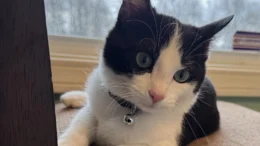Cranberry Township’s efforts to clean up abandoned and inoperable vehicles, stored on private properties and visible from a roadway, are moving ahead through a series of court hearings.
“We are continuing hearings on the civil and criminal cases,” said Ben Breniman, the township zoning officer, at a supervisors meeting Thursday. “And more are coming.”
The campaign, one that in its early stages is focused squarely on abandoned vehicles, is two-fold.
In addition, those vehicles that are not located within a junkyard, a designation that requires a township permit, violate the township zoning code.
There are exceptions to the rule and they apply to vehicle repair and vehicle sales businesses and active farmers.
Last week, a civil case against a Cranberry Township resident was heard before district judge Patrick Lowrey. The judge ruled in favor of the township and the property owner was fined $500 and ordered to pay court costs.
The fine, listed in the code as $500 per day for each subsequent day the vehicles are not moved, would have been more than $3,000, according to the penalties section listed in the code. Lowrey, however, levied only a $500 fine.
The vehicle-related violation notices, sent out by the township over the past three months, were directed to nine individuals for 15 parcels. While some have complied and others have obtained a continuance, hearings for six individuals who own nine properties are set for Thursday before Lowrey.
Kevin Ross, a property owner adjacent to a parcel along Deep Hollow Road and Route 322 that has scores of old vehicles, advised the supervisors to offer assistance to some of those who are facing the costs and efforts associated with moving the vehicles.
Breniman said letter recipients are advised that they have a deadline to appeal.
“And we need to know they are making progress,” said the zoning officer. “That helps their case.”
Noting that the enforcement procedures are “a work in progress,” Breniman said the township has “plenty more to go.”
Harold Best, chairman of the supervisors, said the enforcement of the codes “is hopefully getting some results.”







































